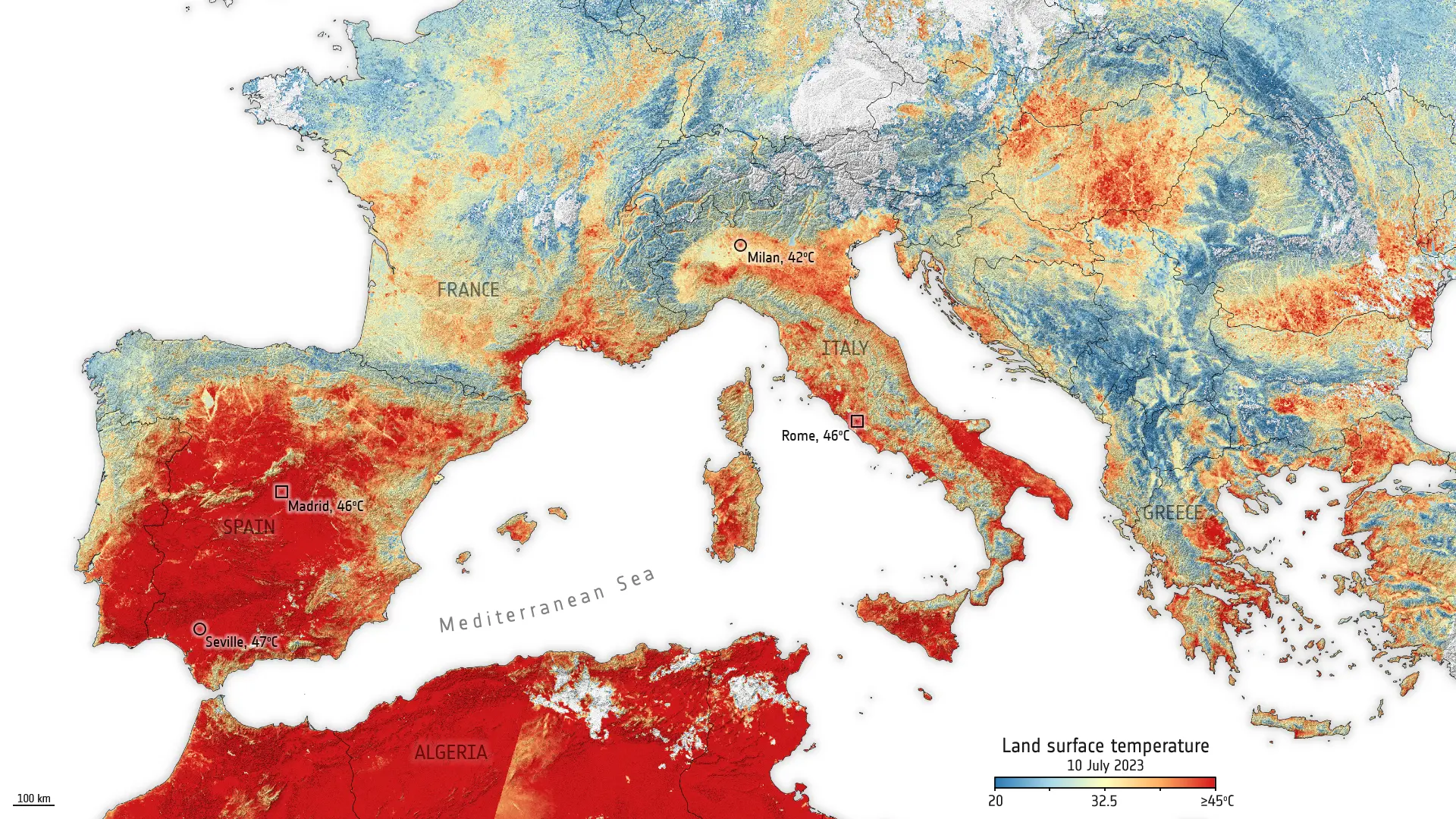
The intense heatwaves that have been engulfing the US, China and southern Europe in July 2023 are “not rare anymore” in our current climate, a new rapid attribution study warns.
July 2023 has seen unprecedented heat affecting much of the northern hemisphere, causing temperature records to tumble.
China’s national temperature record was shattered on 16 July when the mercury reached 52.2C.
Meanwhile, nearly one-third of the US population were put under heat warnings earlier in the month as a “historic” heatwave set multiple heat records of above 100F (37.8C).
And hospital cases across southern Europe have soared as the region swelters under the “Cerberus” heatwave.
The World Weather Attribution service – a global network of scientists who investigate the influence of climate change on extreme weather events – finds that the heatwaves in the US and Europe would have been “virtually impossible” in a world without climate change.
The heatwave in China was “at least 50 times more likely” due to climate change, it adds.
The warming effect of El Niño – a natural cycle of climate variability – “likely contributed some additional heat to the heatwaves in some regions”, the study finds. But, during a press briefing, an author on the study explained that its impact is “very small compared to the effect of climate change”.
The study finds that if average global temperatures reach 2C above preindustrial temperatures – a 0.8C increase from today – extreme heat events on this scale could happen every 2-5 years.
…